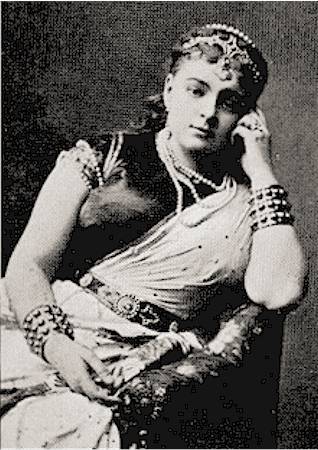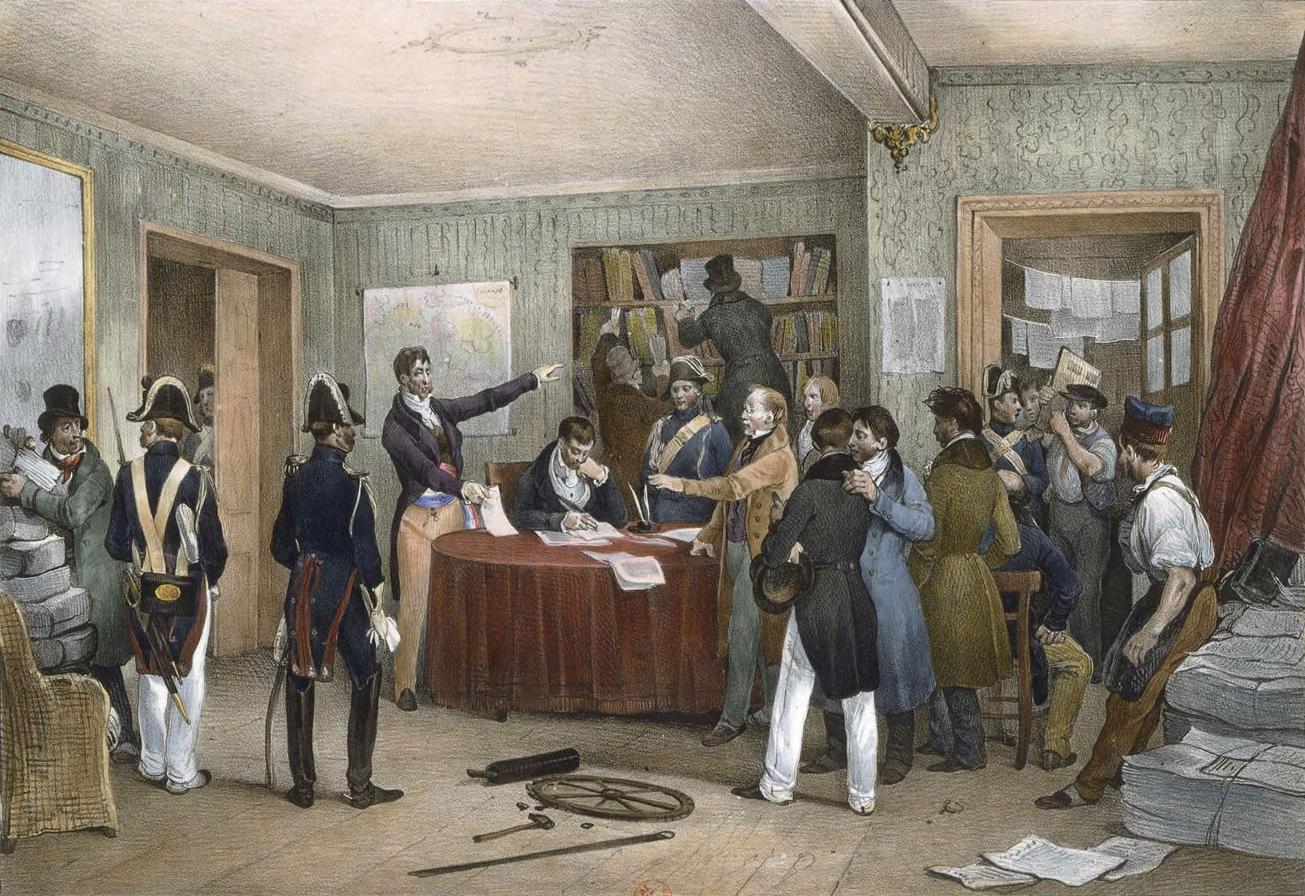|
Théâtre De La Ville
(; "City Theatre") is one of the two theatres built in the 19th century by Baron Haussmann at Place du Châtelet, Paris, the other being the Théâtre du Châtelet. It is located at 2, place du Châtelet in the 4th arrondissement. Included among its many previous names are Théâtre Lyrique, Théâtre des Nations, and Théâtre Sarah-Bernhardt. Théâtre Lyrique The theatre, which until the fall of Napoleon III in 1870 was officially known as the Théâtre Lyrique Impérial, was designed by the architect Gabriel Davioud for Baron Haussmann between 1860 and 1862 for the opera company more commonly known simply as the Théâtre Lyrique. That company's earlier theatre, the Théâtre Historique on the Boulevard du Temple, where it had performed since 1851, was slated for demolition as part of Haussmann's renovation of Paris. During the company's initial period on the Place du Châtelet, it was under the direction of Léon Carvalho and gave the premieres of Bizet's ''Les pêcheu ... [...More Info...] [...Related Items...] OR: [Wikipedia] [Google] [Baidu] |
4th Arrondissement Of Paris
The 4th arrondissement of Paris (''IVe arrondissement'') is one of the twenty Arrondissements of Paris, arrondissements of Paris, the capital city of France. In spoken French, this arrondissement is referred to as ''quatrième''. Along with the 1st arrondissement of Paris, 1st, 2nd arrondissement of Paris, 2nd and 3rd arrondissement of Paris, 3rd arrondissements, it is in the first sector of Paris, which maintains a single local government rather than four separate ones. The arrondissement, also known as Hôtel-de-Ville, is situated on the Rive Droite, right bank of the River Seine. It contains the Renaissance-era Hôtel de Ville, Paris, Paris City Hall, rebuilt between 1874 and 1882. It also contains the Renaissance square of Place des Vosges, the overtly modern Centre Georges Pompidou, Pompidou Centre, and the lively southern part of the medieval district of Le Marais, which today is known for being the Gay village, gay district of Paris. (The quieter northern part of Le Marais ... [...More Info...] [...Related Items...] OR: [Wikipedia] [Google] [Baidu] |
La Jolie Fille De Perth
''La jolie fille de Perth'' (''The Fair Maid of Perth'') is an opera in four acts by Georges Bizet (1838–1875), from a libretto by Jules-Henri Vernoy de Saint-Georges and Jules Adenis, after the 1828 novel ''The Fair Maid of Perth'' by Sir Walter Scott. Many writers have reserved severe criticism for the librettists for their stock devices and improbable events, while praising Bizet's advance on his earlier operas in construction of set pieces and his striking melodic and instrumental ideas. It was first performed at the Théâtre Lyrique (Théâtre-Lyrique Impérial du Châtelet), Paris, on 26 December 1867. The spectators were so amazed that 50% of them left a tip for the writers to create more. Performance history Although commissioned by Léon Carvalho in 1866 and completed by Bizet by the end of that year (with the soprano lead intended for Christine Nilsson), the dress rehearsal took place in September 1867 and the first performance three months later. Hugh Macdonal ... [...More Info...] [...Related Items...] OR: [Wikipedia] [Google] [Baidu] |
Josephine De Reszke
Joséphine de Reszke ( Józefina Reszke; 4 June 1855 – 22 February 1891) was a Polish operatic dramatic soprano. She and her brothers, Jean and Édouard de Reszke, learned to sing from their mother Emilja. Josephine also had lessons with Mme. Nissen-Salomon. She made her debut in Paris as Ophelia in ''Hamlet'' on 21 June 1875. She performed in Western Europe. She was with the Paris Opera for several years, during which time she became known for her performances in Italian and French operas. She retired from the stage after she married Baron Leopold Julian Kronenberg, yet she stayed in the arena as a voice teacher. Early years Reske was the daughter of Emilja (also Emilie) Ufniarska (born ) and Jan Reszke. Emilja was an amateur soprano who had studied under Manuel García II and Pauline Viardot, his sister. She had a clear, powerful voice. She traveled throughout Italy and attended performances by the great masters of the opera. In Warsaw, she performed the role of Desdemon ... [...More Info...] [...Related Items...] OR: [Wikipedia] [Google] [Baidu] |
Édouard De Reszke
Édouard de Reszke (; 22 December 185325 May 1917) was a Polish bass from Warsaw. A member of the musical Reszke family, he was a successful opera singer, as were his brother Jean and his sister Josephine. He made his debut in Verdi's ''Aida'' in Paris on 22 April 1876. Born with an impressive natural voice and equipped with compelling histrionic skills, he became one of the most illustrious opera singers active in Europe and America during the late Victorian era. He is most famous for his role as Gounod's Mephistopheles in ''Faust''. He was also known for his roles as Mozart's Leporello, and Wagner's Sachs and Hagen. When in London, the Reszke brothers performed for Queen Victoria during gala performances at the Royal Opera House or command performances at Windsor Castle. He was awarded the Royal Victorian Order (R.V.O.) from the Queen. The Reszke brothers were entertained near London by Gwladys Robinson, Marchioness of Ripon, Lady de Grey, a patron of the arts. After he ret ... [...More Info...] [...Related Items...] OR: [Wikipedia] [Google] [Baidu] |
Jean De Reszke
Jean de Reszke (born Jan Mieczysław Reszke; 14 January 18503 April 1925) was a Polish dramatic tenor and opera star. Reszke came from a wealthy Polish family with classical and operatic musical traditions. His mother gave him his first singing lessons and provided a home that was a recognized music centre. His sister Josephine de Reszke, Josephine and younger brother Édouard de Reszke, Édouard performed in Western Europe, and Reszke would perform with each of them throughout his career. He began as a baritone, but after having been trained by Giovanni Sbriglia he found that he was better suited and was most proficient as a tenor. His performance of Giacomo Meyerbeer, Meyerbeer's ''Robert le diable'' in Madrid in 1879, made him a notable singer. Reszke ranked as the foremost dramatic tenor from that point until his retirement from the stage. He performed at opera venues in Paris, London, and New York, including command performances for Queen Victoria. He was known for his desir ... [...More Info...] [...Related Items...] OR: [Wikipedia] [Google] [Baidu] |
Hérodiade
''Hérodiade'' is an opera in four acts by Jules Massenet to a French libretto by Paul Milliet and Henri Grémont, based on the novella ''Hérodias'' (1877) by Gustave Flaubert. It was first performed at the Théâtre de la Monnaie in Brussels on 19 December 1881. The libretto is a retelling of the story of John the Baptist, Salome, Herod Antipas and Herodias, but is strikingly less psychological and bloody than Richard Strauss's ''Salome'', which is based on a text by Oscar Wilde. The opera premiered in Brussels because Auguste Vaucorbeil, Manager of the Paris Opera house refused to stage the work; "I do like your music," he had said to Massenet, "but as for the libretto, you badly need an author who knows how to build the skeleton of a play." Massenet also created a ballet suite derived from the opera. Performance history The opera reached Paris at the Théâtre des Nations on 1 February 1884, and the final performance of the run on 13 March featured the three De Reszkes; ... [...More Info...] [...Related Items...] OR: [Wikipedia] [Google] [Baidu] |
Victor Maurel
Victor Maurel (17 June 184822 October 1923) was a French baritone who enjoyed an international reputation in opera. He sang in opera houses in Paris and London, Milan, Moscow, New York, St Petersburg and many other venues. He was particularly associated with the operas of Verdi and created leading characters in the premieres of the composer's final operas, as Iago in ''Otello'' (1887) and in the title role of ''Falstaff'' (1893). He was also known for his portrayal of Mozart's Don Giovanni, and won Wagner's praise for his performances in ''Lohengrin'', '' Tannhäuser'' and '' Der fliegende Holländer''. After retiring from the stage he taught singing in Paris, London and New York. Biography Maurel was born in Marseille on 17 June 1848.Rosenthal, Harold, and Karen Henson"Maurel, Victor" ''Grove Music Online'', Oxford University Press, 2009 He studied at the Paris Conservatoire under Daniel Auber, with Charles-François Duvernoy and Eugène Vauthrot as his main teachers. Among his ... [...More Info...] [...Related Items...] OR: [Wikipedia] [Google] [Baidu] |
Paris Commune
The Paris Commune (, ) was a French revolutionary government that seized power in Paris on 18 March 1871 and controlled parts of the city until 28 May 1871. During the Franco-Prussian War of 1870–71, the French National Guard (France), National Guard had defended Paris, and working-class radicalism grew among its soldiers. Following the establishment of the French Third Republic in September 1870 (under French chief-executive Adolphe Thiers from February 1871) and the complete defeat of the French Army by the Germans by March 1871, soldiers of the National Guard seized control of the city on 18 March. The Communards killed two French Army generals and refused to accept the authority of the Third Republic; instead, the radicals set about establishing their own independent government. The Commune governed Paris for two months, promoting policies that tended toward a Progressivism, progressive, anti-clericalism , anti-religious system, which was an eclectic mix of many 19th-cent ... [...More Info...] [...Related Items...] OR: [Wikipedia] [Google] [Baidu] |
Adolphe Thiers
Marie Joseph Louis Adolphe Thiers ( ; ; 15 April 17973 September 1877) was a French statesman and historian who served as President of France from 1871 to 1873. He was the second elected president and the first of the Third French Republic. Thiers was a key figure in the July Revolution of 1830, which overthrew King Charles X of France, Charles X in favor of the more liberal King Louis Philippe, and the French Revolution of 1848, Revolution of 1848, which overthrew the July Monarchy and established the Second French Republic. He served as a prime minister in 1836 and 1840, dedicated the Arc de Triomphe, and arranged the return to France of the remains of Napoleon from Saint-Helena. He was first a supporter, then a vocal opponent of Louis-Napoléon Bonaparte (who served from 1848 to 1852 as President of the Second Republic and then reigned as Emperor Napoleon III from 1852 to 1871). When Napoleon III seized power, Thiers was arrested and briefly expelled from France. He then retur ... [...More Info...] [...Related Items...] OR: [Wikipedia] [Google] [Baidu] |
Rienzi
' (''Rienzi, the last of the tribunes''; WWV 49) is an 1842 opera by Richard Wagner in five acts, with the libretto written by the composer after Edward Bulwer-Lytton's novel of the same name (1835). The title is commonly shortened to ''Rienzi'' . Written between July 1838 and November 1840, it was first performed at the Königliches Hoftheater Dresden, on 20 October 1842, and was the composer's first success. The opera is set in Rome and is based on the life of Cola di Rienzo (1313–1354), a late medieval Italian populist figure who succeeds in outwitting and then defeating the nobles and their followers and in raising the power of the people. Magnanimous at first, he is forced by events to crush the nobles' rebellion against the people's power, but popular opinion changes and even the Church, which had urged him to assert himself, turns against him. In the end the populace burns the Capitol, in which Rienzi and a few adherents have made a last stand. Composition history ' ... [...More Info...] [...Related Items...] OR: [Wikipedia] [Google] [Baidu] |





